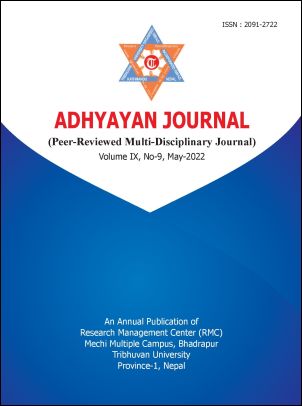Invalidation, Desire and Destruction in Willa Cather’s Paul Case
DOI:
https://doi.org/10.3126/aj.v9i1.48743Keywords:
Concert, humanistic, inquisition, jury, reproaches, suicideAbstract
Willa Cather’s short story “Paul’s Case” depicts how constant reproaches and invalidation of parents and teachers make an adverse effect on a child’s personality growth that might lead to tragic end of life. Paul, a motherless child, is suspended from the class and is brought in front of the inquisition jury at the office of Pittsburg High School for his clarification of his ill manners. He could not satisfy the jury the reasons for his manners and they suggest his father not to let Paul to work in the concert where he works as an usher. Then his father finds him a job in a business office from which he steals money and goes to New York. There he spends money lavishly but as the amount lowers and he comes to know that his father is coming to receive, he fears to meet him and commits suicide. This article explores how constant reproaches and invalidation mar the personality of a child from humanistic psychological perspective. Carl Roger’s Humanistic perspective of personality growth assumes that a child possesses full potentials for his or her growth and if he or she is given appropriate environment for his growth, he experiences full growth. But the social or familial imposition of their obligations mar the growth and sometimes such obligations lead to death of a child. Paul, who is suppressed and invalidated at home and at school uses concert as a place to comfort. As his father does not let him work there, he finds no palace to ease him. In the desperate mood, he steals money and spends lavishly for sometimes. But the thought of meeting his father distresses him so much that he finds no other ways than committing suicide.




